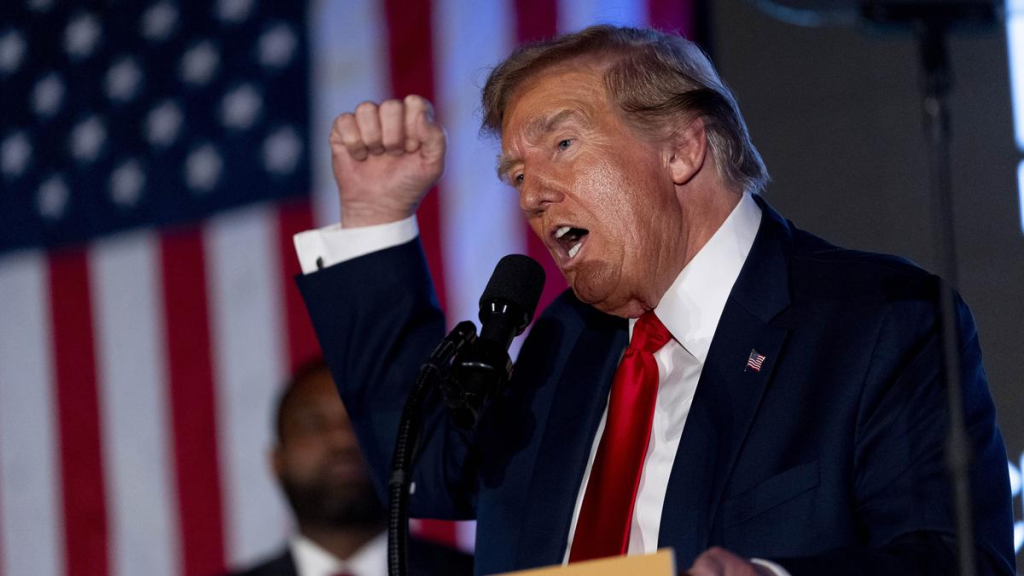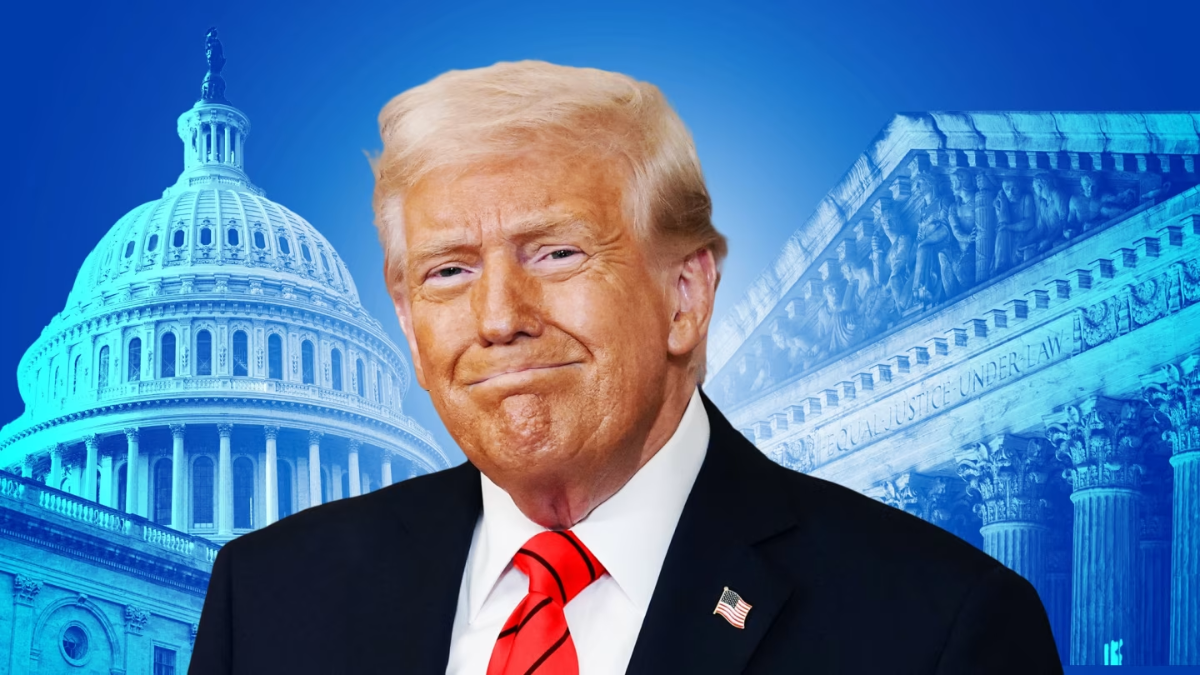A landmark case involving former President Donald Trump’s claims to broad executive immunity has officially reached the Supreme Court, setting the stage for one of the most consequential decisions in U.S. constitutional history.
At the center of the case is Trump’s assertion that presidents should be immune from criminal prosecution for actions taken while in office—a claim that has sparked fierce legal and political debate nationwide.
The outcome of this case could fundamentally redefine the limits of presidential authority, with implications that extend far beyond Trump himself. With the 2024 election cycle underway and Trump actively campaigning, the Court’s decision could also influence how future presidents exercise power and face accountability.
What Is the Case About?
The case stems from federal charges brought against Trump related to his alleged efforts to overturn the results of the 2020 election, including actions taken before and during the January 6th Capitol riot.
Trump’s legal team has argued that a former president cannot be prosecuted for official acts undertaken while in office, even if those acts are later deemed illegal.
Lower courts, including the D.C. Circuit Court of Appeals, have rejected that argument, stating that no individual, including a former president, is above the law. However, the Supreme Court has now agreed to hear the case, which legal experts say will serve as a litmus test for the rule of law and separation of powers in the United States.
Why This Case Matters
This case goes beyond Trump—it poses a direct challenge to the foundational checks and balances in the U.S. Constitution. If the Court rules in Trump’s favor, it could create broad immunity for presidents, potentially shielding them from criminal prosecution for any action taken while in office.
Critics warn this could effectively put presidents above the law, enabling future abuses of power.
Legal scholars across the political spectrum have expressed concern. “If the Court accepts Trump’s view of absolute immunity, it would fundamentally alter our democratic system,” said Caroline Fredrickson, a constitutional law expert. “It would suggest that presidents can operate without consequence.”
Meanwhile, Trump’s defenders argue that immunity is essential to allow presidents to act decisively without fear of prosecution once they leave office. They say criminal liability would politicize the presidency and undermine executive authority.
What Happens Next?
The Supreme Court will hear oral arguments in late April, with a decision expected by late June 2025. This timeline is especially significant because it aligns with the run-up to the 2024 presidential election, in which Trump remains the frontrunner for the GOP nomination.
Key questions the justices will consider include:
- Can a former president be criminally prosecuted for official actions?
- What defines an “official act” in the context of the presidency?
- Does prosecuting Trump set a dangerous precedent—or uphold democratic accountability?
This case joins other high-stakes Supreme Court decisions that could define the year, including rulings on abortion access, gun rights, and voting laws.
For ongoing case documents and filings, readers can track the docket through the Supreme Court’s official website.

Potential Outcomes and Consequences
The Court has several paths it could take:
- Uphold lower court rulings, allowing the criminal trial to proceed.
- Narrowly define presidential immunity, offering limited protection for official actions.
- Broadly rule in Trump’s favor, shielding presidents from most forms of prosecution.
If the Court rules against Trump, his criminal cases—especially the one led by Special Counsel Jack Smith—could resume swiftly. If it rules in his favor, all pending prosecutions tied to his presidency could be derailed, effectively delaying or dismissing key charges against him.
Such an outcome could reshape the legal landscape for how future presidents are held accountable, and influence how much power they can wield without fear of legal consequences.
A Precedent-Setting Decision in the Making
This is not the first time presidential immunity has reached the nation’s highest court. In 1974, the Court ruled unanimously in United States v. Nixon that President Nixon had to turn over White House tapes, limiting executive privilege. However, this case goes further—potentially giving former presidents a shield from criminal prosecution, not just subpoenas.
Experts agree that the ruling will have a lasting impact. “We’re at a crossroads,” said Harvard Law Professor Laurence Tribe. “The decision will either strengthen our democratic institutions or accelerate their erosion.”
As the justices prepare for oral arguments, the nation watches closely. With public trust in government institutions already strained, how the Court handles this Trump case could either restore or erode confidence in the judicial system’s ability to check executive overreach.
Conclusion
The Supreme Court is poised to make a historic ruling on whether former President Donald Trump—and by extension, future presidents—can be held criminally accountable for actions taken while in office. The decision could either uphold the principle that no one is above the law or dramatically expand executive immunity.
For full case details, analysis, and court filings, visit SCOTUSblog’s ongoing coverage of Trump v. United States.
Disclaimer – Our team has carefully fact-checked this article to make sure it’s accurate and free from any misinformation. We’re dedicated to keeping our content honest and reliable for our readers.
